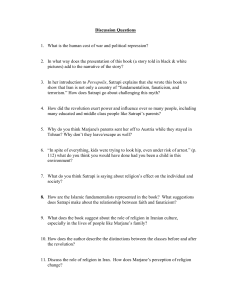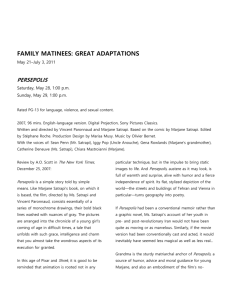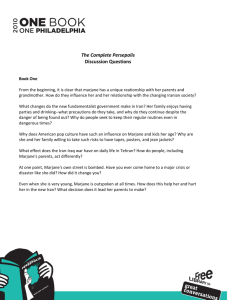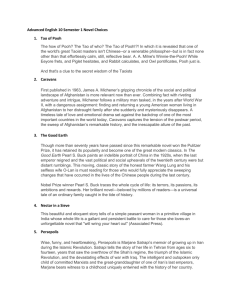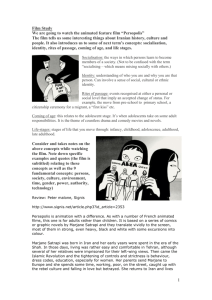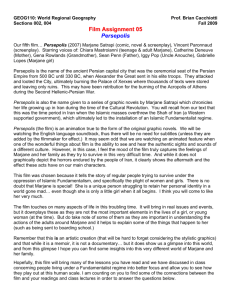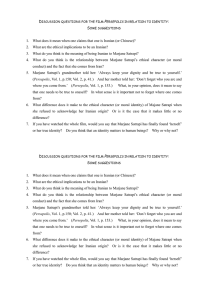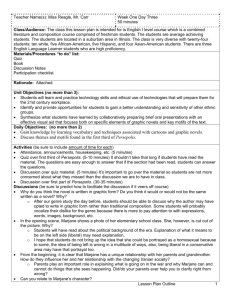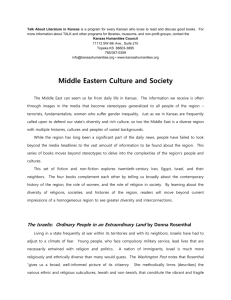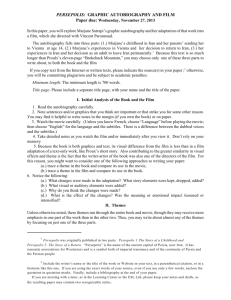Further Discussion Questions 1. After reading Persepolis, has it
advertisement
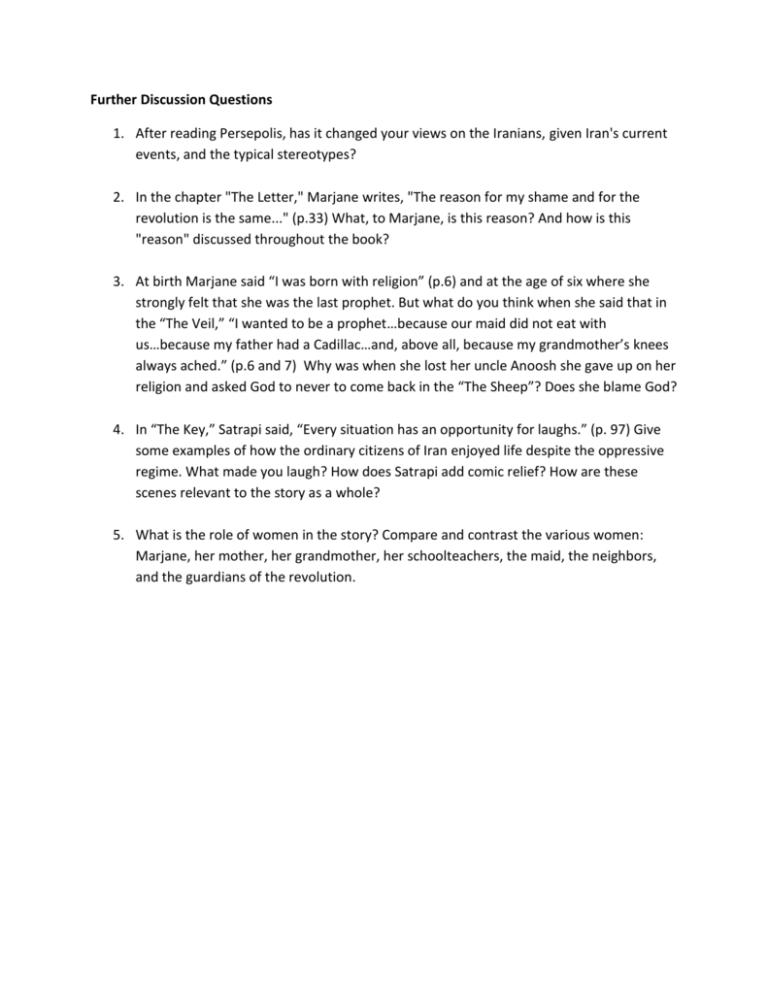
Further Discussion Questions 1. After reading Persepolis, has it changed your views on the Iranians, given Iran's current events, and the typical stereotypes? 2. In the chapter "The Letter," Marjane writes, "The reason for my shame and for the revolution is the same..." (p.33) What, to Marjane, is this reason? And how is this "reason" discussed throughout the book? 3. At birth Marjane said “I was born with religion” (p.6) and at the age of six where she strongly felt that she was the last prophet. But what do you think when she said that in the “The Veil,” “I wanted to be a prophet…because our maid did not eat with us…because my father had a Cadillac…and, above all, because my grandmother’s knees always ached.” (p.6 and 7) Why was when she lost her uncle Anoosh she gave up on her religion and asked God to never to come back in the “The Sheep”? Does she blame God? 4. In “The Key,” Satrapi said, “Every situation has an opportunity for laughs.” (p. 97) Give some examples of how the ordinary citizens of Iran enjoyed life despite the oppressive regime. What made you laugh? How does Satrapi add comic relief? How are these scenes relevant to the story as a whole? 5. What is the role of women in the story? Compare and contrast the various women: Marjane, her mother, her grandmother, her schoolteachers, the maid, the neighbors, and the guardians of the revolution.

